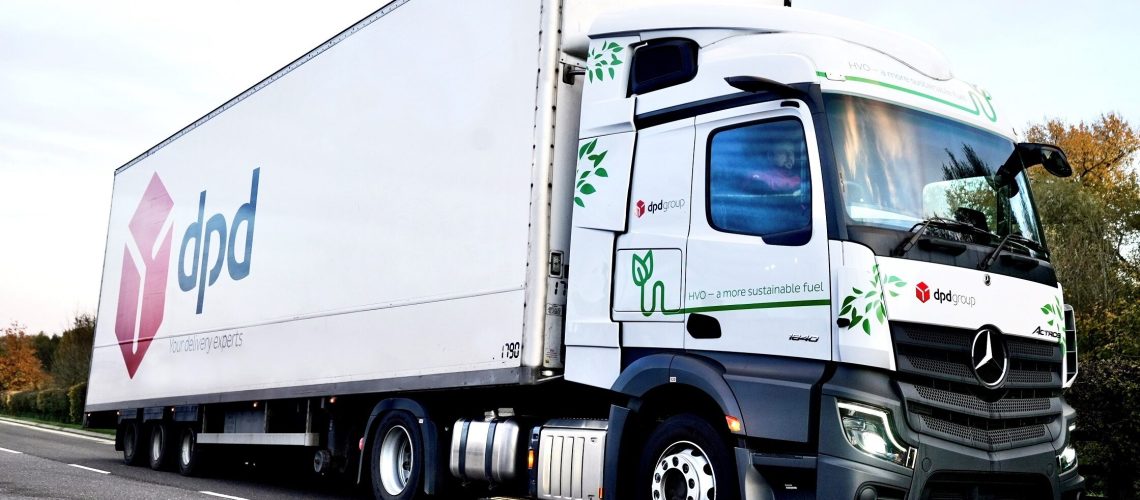Parcel delivery company DPD UK has announced it will be switching its entire diesel HGV fleet to renewable biofuel by the end of next year. The move, in partnership with integrated energy provider Essar and Green Biofuels, will see the company’s vehicles running on Green D (Gd+) hydrotreated vegetable oil (HVO).
Under the EU’s REDII legislation, Gd+ HVO is a renewable and sustainable alternative for diesel, while also being the lowest-emission replacement fuel available on the market. Developed using renewable feedstock, it contains a specifically designed performance additive to ensure cleanliness and optimum combustion throughout the fuel system.
“This is a very significant step in the journey to decarbonising our entire fleet and achieving our aim of being the most sustainable parcel delivery company in the UK. While we are well on the way to electrifying our delivery van fleet, the HGV linehaul fleet has always been a very different challenge. We have assessed a range of options and it is clear now that this is the most effective and practical way to make a real difference. While there may be different solutions in years to come, we must start this process now by making our existing vehicles significantly cleaner,” said Justin Pegg, Chief Operating Officer at DPD UK.
Operators of diesel engines that decide to use the Gd+ HVO fuel will be able to save lifecycle greenhouse gas emissions by 90% and therefore help improve local air quality. Moreover, in-field and controlled environment-independent tests have shown that compared to standard diesel emissions, Gd+ HVO achieves up to 80% reductions of particulates and up to 20% reductions of nitrogen oxides emissions.
“We are delighted to be working with Essar and DPD,” commented William Tebbit, CEO and Co-Founder of Green Biofuels. “Our mission is to support the net-zero energy transition by providing a solution that that makes an immediate impact on local air quality, lowers CO2 emissions, and supports decarbonization. The challenges faced by DPD are typical of most large fleets in the UK; however, Gd+ HVO provides results with no additional costs of transforming the engines. Green Biofuels offers the most effective solution available today – it is an essential ingredient for the transition to an environmentally friendly world fueled by 100% renewable energy.”
The process of switching to Gd+ HVO will begin immediately and, following a four-month trial, DPD UK aims to convert 60% of its vehicles within 2022, reducing as a result emissions by 70,282 metric tons compared to 2021. The remaining vehicles will switch by the end of 2023.



